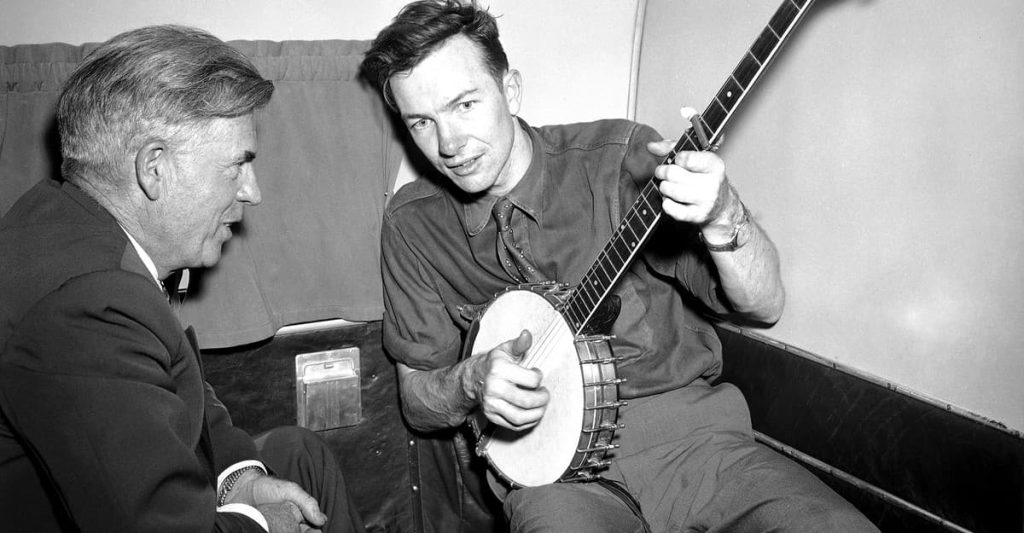
A Simple Tune That Critiques a Complex Society
“Little Boxes” by Pete Seeger is a timeless folk anthem that delivers biting social commentary wrapped in a deceptively simple melody. Released in 1963, the song quickly became a cultural touchstone, embodying the era’s spirit of questioning conformity and critiquing the monotony of suburban life. Originally written by Malvina Reynolds, the song found its most famous voice in Seeger, whose folk credentials and unwavering commitment to activism amplified its message.
The song’s release coincided with the height of the suburban boom in the United States. Post-World War II prosperity had led to a wave of housing developments that promised the American dream: cookie-cutter homes in neat rows, symbolizing success and stability. But “Little Boxes” pulled back the curtain on this idealized image, revealing a less flattering reality. The “boxes” Reynolds and Seeger sang about weren’t just houses—they were symbols of conformity, uniformity, and a society that prioritized material success over individuality.
With its opening line, “Little boxes on the hillside, little boxes made of ticky-tacky,” the song immediately conjures a vivid image of mass-produced homes, all looking the same and fostering lives that followed identical patterns. The use of the term “ticky-tacky,” a dismissive reference to the cheap materials used in these developments, underscores the critique of a lifestyle built on superficial values.
A Folk Classic That Resonates Through Time
Pete Seeger’s performance of “Little Boxes” is characterized by his clear, earnest delivery. His voice, unadorned and direct, gives the song a sense of authenticity that resonates deeply. At its core, the song is as much a critique of suburban sprawl as it is of societal pressures to conform: the expectation to attend the same schools, pursue the same careers, and live the same lives.
Though it didn’t chart on major Billboard rankings, “Little Boxes” became a hit in the hearts of listeners, especially among those who resonated with its anti-establishment themes. The song’s lasting cultural impact can be seen in its adoption by various movements and its inclusion in modern television, such as the opening sequence of the show Weeds, which revived its relevance for a new generation.
A Message Still Relevant Today
Listening to “Little Boxes” now, decades after its release, the song’s critique of conformity feels as poignant as ever. In an age of increasing consumerism and social media-fueled homogeneity, the message of celebrating individuality and questioning societal norms is as vital as it was in the 1960s.
Seeger’s ability to turn a simple tune into a powerful statement is a testament to his genius as both a musician and an activist. For older audiences, “Little Boxes” may evoke memories of a time when folk music was a rallying cry for change. For younger listeners, it serves as a gentle reminder to value authenticity over appearances. Either way, its enduring appeal lies in its ability to speak to the human condition with warmth, wit, and a touch of melancholy.
So, the next time you hear Seeger’s banjo-strumming introduction to “Little Boxes,” take a moment to reflect: What do the “little boxes” in your life look like? And are they truly where you want to live?